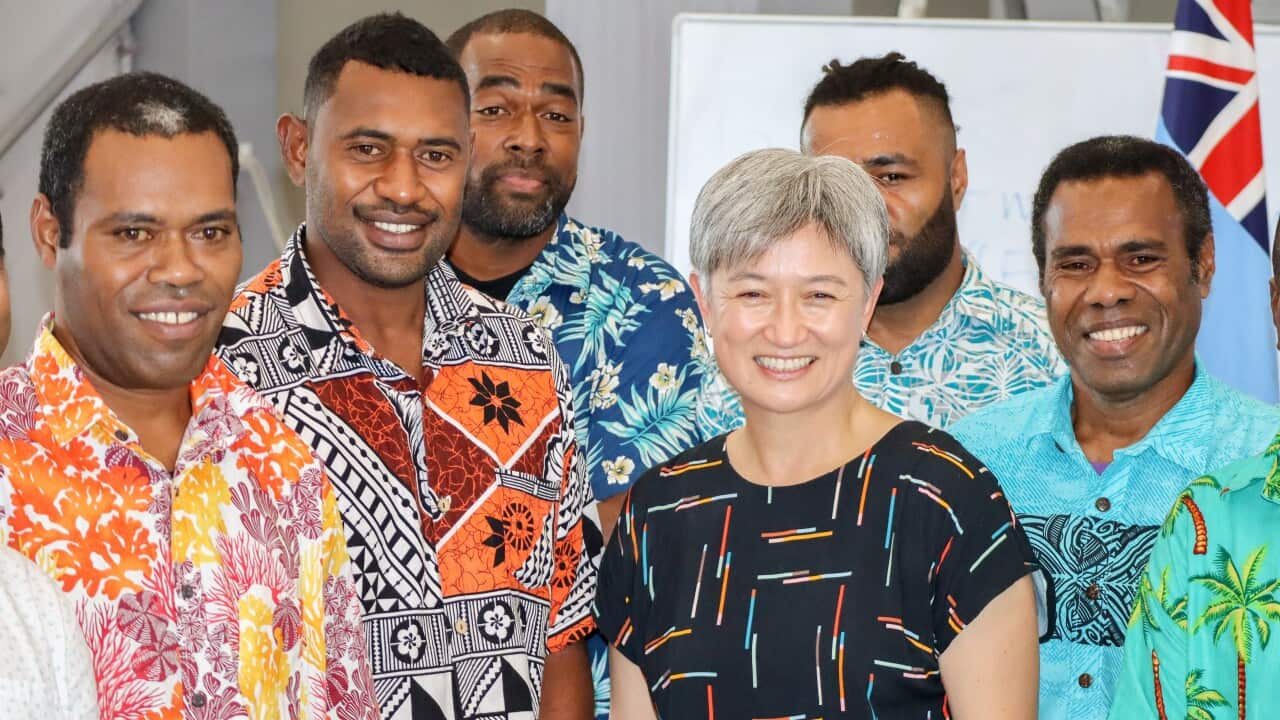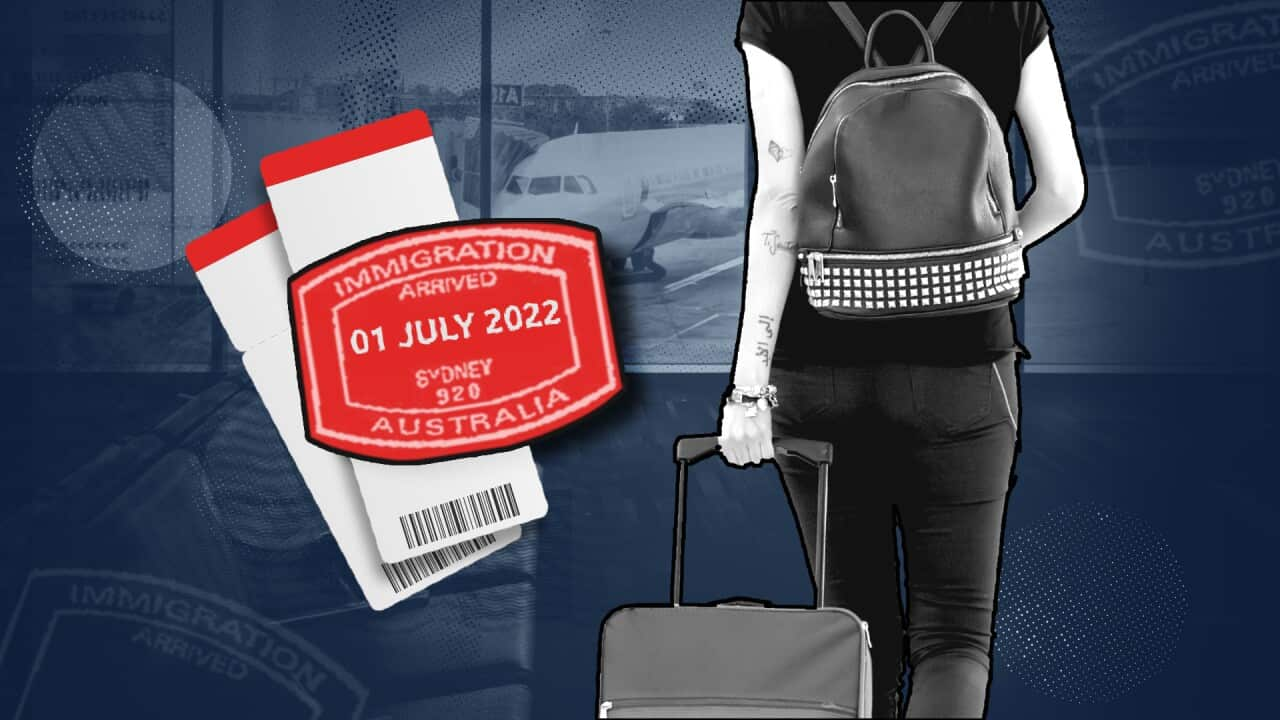Key Points
- A new program is offering aged care workers from the Pacific islands.
- Dozens of Fijian aged care trainees are hoping to come to Australia.
Dozens of Fijian aged care trainees are hoping to come to Australia, as part of the first-ever program to train and fast-track workers from the Pacific.
Forty students are going through the 12-week course at the Australia Pacific Training Coalition (APTC), but hundreds more want to be involved.
Trainer Miliakere Nasaroa said the pilot program only started this year, but they are already getting hundreds of applications.

Dominique Bulivou
“I was taken back by the vulnerability of the elders in my society that's why I decided to join the course to upgrade my skills,” she said.

Shinal Prasad is training to be an aged care nurse in Australia.
“In my culture, mostly the elderly, they stay with us stay with the family. So we treat them with respect and we value them and they have the dignity,” she said.
The Federal Government’s Pacific Australia Labour Mobility scheme (PALM) has seen 25,000 workers from the Pacific come to Australia, including 2600 from Fiji.
It has traditionally focused on agriculture and blue-collar industries, but it’s been expanded to include the aged care sector as it struggles to fill critical worker shortages.
In my culture, the elderly ... we treat them with respect and we value them.Shinal Prasad
Prime Minister Anthony Albanese said the scheme would be expanded to allow the families of workers to come to Australia as well.
“My government has committed to 215 minutes of care [every resident to receive a minimum of three hours and 35 minutes of care per day] in accordance with the aged care Royal Commission,” he said.
“We know that we will need more workers in order to satisfy the demand."

Carolyn Jalal (left) with aged care trainer Milakere Nasaroa.
From April, the two separate worker visa streams under PALM - the seasonable worker program and Pacific labour scheme - will be consolidated into a single PALM visa. The new visa will be valid for a longer period of up to four years and allow workers to return to Australia multiple times.
During the election, Labor also promised a ballot system for 3,000 permanent residency visas.
Mr Conroy said the Pacific Engagement Visa represented “a revolutionary change in how we do migration policy in Australia”.
“For the first time we will be reserving 3,000 permanent migration spots for Pacific islanders each year,” Mr Conroy said.
He said that will help build a significant diaspora in Australia that’s already strong, but not as strong as it could be.

Trainees at the APTC facility in Fiji.
“We'll be allocating 3,000 and consulting with countries about how we meet that process, ” he said.
“The goal is that we have opportunities for every Pacific nation to take part in it and that but we're working through the details of that.”
He said people applying for it need to have a job offer before they come to Australia, similar to the US Green Card scheme or the New Zealand visa scheme.
Record low unemployment and rising COVID-19 cases have caused industries across Australia to experience staffing shortages. It’s been exacerbated by Australia’s low migration during the pandemic.
APTC Labour Mobility Manager Carolyn Jalal said the students that go through her program will graduate with a Certificate Three qualification and then be sent to locations across regional Queensland.
“Once they get their letters of employment, the visas are applied for and they go, so they’ll be in Australia in early September,”
The locations are Yeppoon, Mackay, Bundaberg, Sunshine Coast area, Gympie and Toowoomba,” she said.

Prime Minister Anthony Albanese and Minister for the Pacific, Pat Conroy, with students and staff of the APTC in Fiji.
“We’ve already had a few hundred of our graduates placed at aged care facilities in Australia and the feedback has come back — they want even more.”
But it’s not just Australia that will benefit. APTC student Shivnesh Sami, 35, said he would send make any money he makes back to his family in Fiji.
“I’m going on a work visa so I’ll be working there and supporting my family back in Fiji.”
Mr Albanese said the average participant in the scheme remits around $6000 a year back to their country of origin.
"It's a way of boosting the economy (in the Pacific) whilst making a real difference back in Australia. I think this is an example whereby our practical partnership is producing enormous benefit,” he said.
Pasemaca Temo, 38, says it will help her create a better life for her family.
“A privilege to bring our families into Australia. Monetary wise I know it's very good and actually empowers our kids in education. It will be a very good thing to actually bring our families back there.”
Would you like to share your story with SBS News? Email











